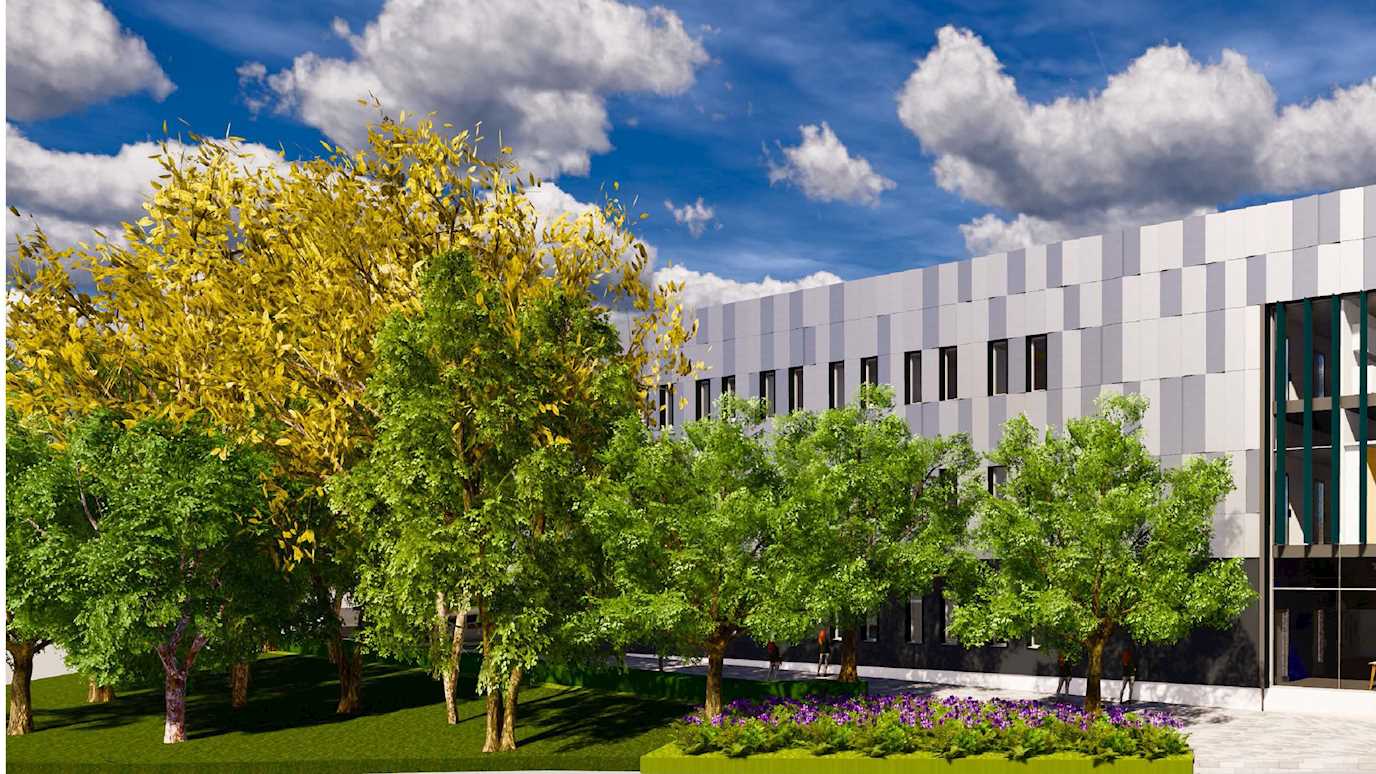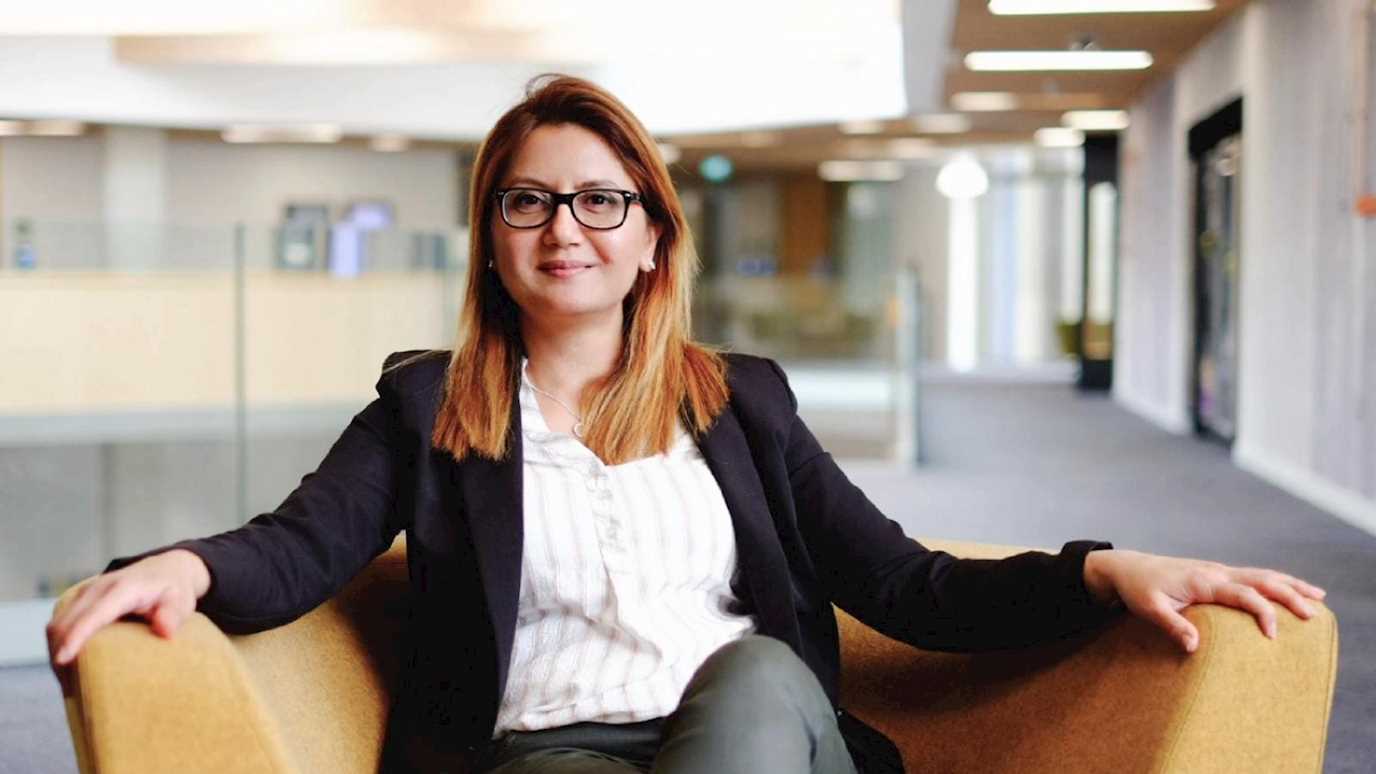Funding of £5million has been granted by Enterprise M3 Lep (EM3) to Royal Holloway, University of London, to help build a brand new, state-of-the-art cyber security and big data centre on its campus.

Artists impression of how the building might look. Credit Stride Treglown.
The new centre at the university, which will cost around £12.93m in total, will house a ‘war room’, along with a large Cyber-Physical Engineering Collaboration Space (CPECS) to directly engage and support industrial innovation along with meeting rooms, training areas and incubation space for start-up companies.
There will also be space to house technical staff from collaborating companies who wish to be embedded within the colleges’ cyber security activities.
The digital economy and its importance as a catalyst for growth has been highlighted in reports including the Enterprise M3 Strategic Economic Plan and the Innovation South Science and Innovation Audit. The new centre will deliver incubation for a minimum of 25 businesses and 500 new jobs over five years, as well as an increase in GVA of £300m to £500m over a ten-year period.
Inside the new centre, which should be completed by spring 2021, there will be:
- The ‘War Room’ - an interactive space for the simulation and testing of cyber security systems subject to attack-defence gaming attacks. Companies can use the facilities to learn how to withstand attacks on their system, validate their systems to a range of external attack and try to similarly penetrate and hack resilient systems using their own of industry standard tools. One of the simulation environments being proposed will be a common platform developed in collaboration with researchers in the two key facilities in the USA and Japan- (University of Maryland, Baltimore and Keio University Japan). The War Room can be used by companies for training, product development and product validation and threat evaluation and will be used as the main teaching base for dedicated general cyber security training.
- The Cyber-Physical Engineering Collaboration Space (CPECS) - The CPECS is a unique engineering facility aimed at helping companies to try and test physical products that need their cyber resilience and safety tested in practice. In the world of the internet of things, industry 5.0, with autonomous cars and drones, intelligent devices in homes and critical national infrastructures, it has become critical that real physical systems can be deployed and tested with their inherent security evaluated, improved and protected using the real physical architecture on site.
As the government has identified Cyber Security as a key national priority, the National Industrial Strategy identifies cyber security as one of the six priority sectors identified to support the growth of the Artificial Intelligence (AI) and Data-Driven Economy.
Professor Paul Hogg, Vice Principal for Innovation at Royal Holloway, said: “Royal Holloway has been a leader in the field of cyber security through its Information Security Group for some years and we have always enjoyed a good working relationship with industry.
“However, some industries, who are at the leading edge of taking their ambitious ideas forward, won’t be able to realise their potential if their products and services are not perceived to be secure.
“This is where the new centre comes in to enable industries to develop their Cyber Security and Big Data capabilities at Royal Holloway.
“We’re very proud to be utilising our 25-years of expertise by creating this regional centre of excellence and will make the EM3 region the natural go-to place for companies who want assistance in developing, testing, or validating security products and services.”
Chair of the Enterprise M3 LEP Dave Axam said: “The Enterprise M3 economic area has unique strengths in digital technologies such as cyber security and 5G. It is home to a large number of significant multinational businesses as well as 8,500 digital businesses many of which are SMEs. Our local economic plan identifies AI, Digital and Big Data technologies as major growth stimulants for the EM3 economy and the UK as a whole.
Enterprise M3 LEP is focused on investing to stimulate further economic growth by continuously working with its education, local authority, third sector and business partners to ensure that we further and consolidate our region’s position as a global centre for digital innovation. This significant investment in the new cyber-security centre and our partnership with Royal Holloway, University of London, is a really great example of this approach."
























